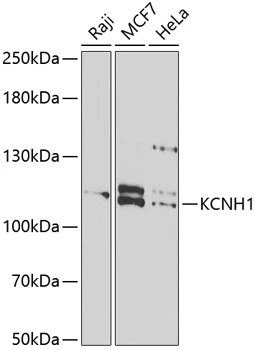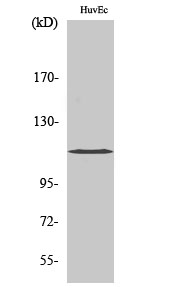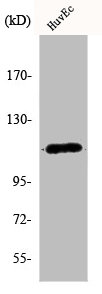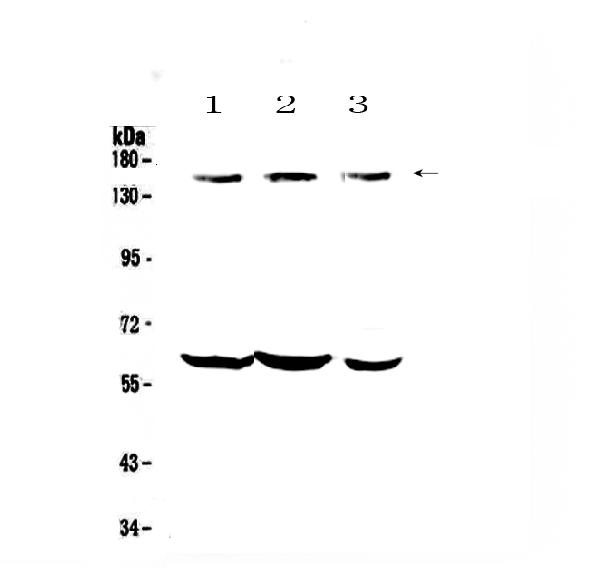
WB analysis of various sample lysates using GTX64743 KCNH1 antibody. Dilution : 1:1000 Loading : 25μg per lane
KCNH1 antibody
GTX64743
ApplicationsWestern Blot
Product group Antibodies
ReactivityHuman
TargetKCNH1
Overview
- SupplierGeneTex
- Product NameKCNH1 antibody
- Delivery Days Customer9
- Application Supplier NoteWB: 1:500 - 1:2000. *Optimal dilutions/concentrations should be determined by the researcher.Not tested in other applications.
- ApplicationsWestern Blot
- CertificationResearch Use Only
- ClonalityPolyclonal
- ConjugateUnconjugated
- Gene ID3756
- Target nameKCNH1
- Target descriptionpotassium voltage-gated channel subfamily H member 1
- Target synonymsEAG, EAG1, K(V)10.1, Kv10.1, TMBTS, ZLS1, h-eag, hEAG, hEAG1, voltage-gated delayed rectifier potassium channel KCNH1, EAG channel 1, ether-a-go-go 1, ether-a-go-go potassium channel 1, ether-a-go-go, Drosophila, homolog of, potassium channel, voltage gated eag related subfamily H, member 1, potassium voltage-gated channel, subfamily H (eag-related), member 1, voltage-gated potassium channel subunit Kv10.1
- HostRabbit
- IsotypeIgG
- Protein IDO95259
- Protein NameVoltage-gated delayed rectifier potassium channel KCNH1
- Scientific DescriptionVoltage-gated potassium (Kv) channels represent the most complex class of voltage-gated ion channels from both functional and structural standpoints. Their diverse functions include regulating neurotransmitter release, heart rate, insulin secretion, neuronal excitability, epithelial electrolyte transport, smooth muscle contraction, and cell volume. This gene encodes a member of the potassium channel, voltage-gated, subfamily H. This member is a pore-forming (alpha) subunit of a voltage-gated non-inactivating delayed rectifier potassium channel. It is activated at the onset of myoblast differentiation. The gene is highly expressed in brain and in myoblasts. Overexpression of the gene may confer a growth advantage to cancer cells and favor tumor cell proliferation. Alternative splicing of this gene results in two transcript variants encoding distinct isoforms. [provided by RefSeq, Jul 2008]
- ReactivityHuman
- Storage Instruction-20°C or -80°C,2°C to 8°C
- UNSPSC12352203






